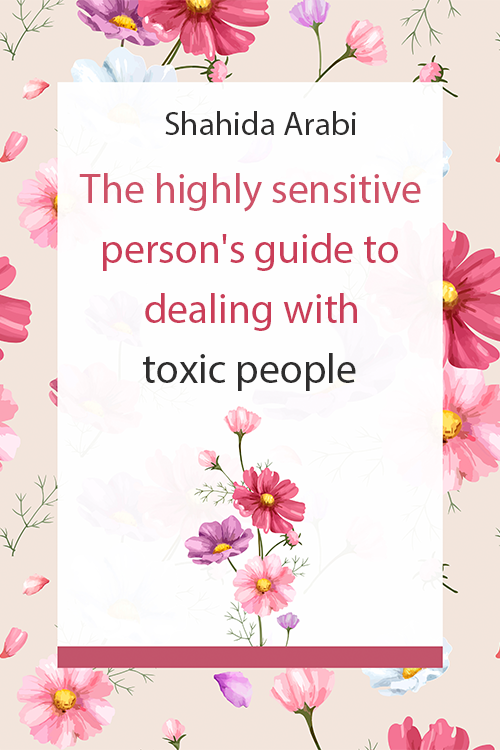About this Author
Shahida Arabi is a recognized expert on narcissism and psychopathy, having carried out extensive research on how toxic individuals affect others. With advanced degrees in both psychology and sociology, Arabi is a best-selling author of three notable books. These include Becoming the Narcissist’s Nightmare: How to Devalue and Discard the Narcissist While Supplying Yourself and POWER: Surviving and Thriving After Narcissistic Abuse.
2020
Self-Help
Conclusion
7 Key Points
Conclusion
To protect yourself from toxic people, recognize their behaviors, set clear boundaries, and prioritize your well-being. Avoid manipulation tactics like gaslighting and stonewalling. Gradually distance yourself from harmful individuals, focusing on activities that promote emotional recovery and personal growth. Stay strong and confident.
Abstract
In The Highly Sensitive Person's Guide to Dealing with Toxic People by Shahida Arabi, the author delves into the spectrum of toxic behaviors, from benign disrespect to dangerous manipulation. Arabi explores how to identify toxic individuals, including narcissists and psychopaths, and the importance of setting boundaries to protect your well-being. She provides practical strategies to defend against common manipulative tactics like gaslighting, silent treatment, and hoovering. The book emphasizes the significance of self-care, self-awareness, and empowering oneself to break free from toxic relationships, making it an essential guide for those looking to reclaim control and build healthier connections.
Key Points
- Toxic behavior exists on a spectrum, ranging from mild disrespect to harmful manipulation.
- Setting boundaries is key to protecting yourself from toxic individuals.
- Manipulative tactics like silent treatment, gaslighting, and hoovering can harm your mental health.
- To break free from toxic relationships, focus on activities that replace the chemical bond and boost your well-being.
- Recognize that boundaries are not a luxury—they are necessary for emotional safety and self-respect.
- Empathy can make you more vulnerable to toxic people, but prioritizing your needs is essential for protection.
- Toxic people often push back against boundaries, but staying firm helps maintain control of your life.
Summary
Understand the Range of Toxic Behaviors
When people think of toxic individuals, they often imagine narcissists or psychopaths from TV shows—charming yet dangerous characters. But in reality, toxic behavior exists on a spectrum. Not all toxic people are manipulative criminals; some just lack self-awareness or consideration. Regardless of how mild or severe, having toxic people in your life is harmful. To protect your well-being, it’s essential to recognize the different types of toxic personalities and understand that their behavior isn’t your fault or something you need to fix.
Benign Toxicity: Disrespectful but Not Malicious - Some toxic people don’t intentionally try to hurt others, but their behavior still causes stress. You might not need to cut ties with them completely, but learning to set boundaries can help. These individuals often overstep limits without realizing the impact.
- Boundary Violators: These are people who constantly take advantage of your kindness or time. For example, a coworker might regularly offload their tasks onto you, or a friend may demand
Share:



